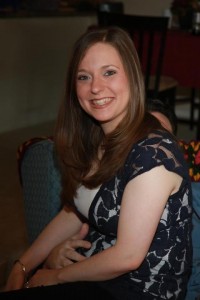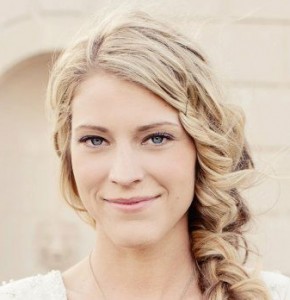 All aspiring writers have heard these two pieces of advice that some consider inane, others gospel: write what you know and write the book you want to read.
All aspiring writers have heard these two pieces of advice that some consider inane, others gospel: write what you know and write the book you want to read.
What if the two are parallel lines that cannot meet?
Let me explain. Although we spoke a different language at home, the medium of my education in India was English and stayed that way throughout school and college–part of the legacy the British left behind.
My first memory of reading is from a text book called The Radiant Reader. The words tap a rhythm in my brain even today: “Sing Mother Sing, Can Mother Sing, Pat Sing to Mother, Mother Sing to Pat.” From there, our readings evolved, as we grew older, to include stories like Jerome K. Jerome’s Uncle Podger Hangs a Picture.
In life outside school we didn’t often come across names like Pat, Jerome or Podger.
By third and fourth grade I’d expanded my pleasure reading, salivating over descriptions of chocolate eclairs in Enid Blyton’s books. I experienced the adventures of the Five Find-Outers with Fatty (politically incorrect these days, Fatty’s name was shortened from Frederick Algernon Trotteville) and Mr. Goon.
I’d never laid eyes on a chocolate eclair. Nor did the inhabitants of my books look anything like my neighbors who wore sarees and salwar kameezes and ate gulab jamuns instead of scones.
Somewhere along my reading journey, Nancy Drew and the Hardy Boys appeared on the bookshelf, introducing me to a world different from the British one I’d known so far. Their American adventures were fun to read, but mostly, they ignited envy. The teenaged Nancy Drew drove a car (a car!), solved mysteries and had a boyfriend. Few women I knew drove. If a family owned an automobile, most likely a hired driver or the father of the house drove it.
At school, I absorbed Charles Dickens and Wilkie Collins and Shakespeare. In my final year I pored over the text book Far From the Madding Crowd by Thomas Hardy, only to fall in love with the gentle, reliable Gabriel Oak.
During summer break, I cowered in my bed while Bronte’s Jane Eyre suffered. I devoured books by Agatha Christie and P. G. Wodehouse which made for an interesting amalgam of mysteries and humor. I wept when Beth died in Louisa May Alcott’s Little Women, which presented a different America from the one I’d read in the Nancy Drew series.
Our English curriculum included few Indians writing in English. My Calcutta school introduced me to the luminous Rabindranath Tagore. His evergreen short story, Cabuliwallah, in which a father and young daughter share a close relationship, also explores the unexpected yet tender connection between people of different social classes—the vendor from Kabul and little Mini. Later, in college, I discovered the unpretentious but humorous and memorable literature of R. K. Narayan, nominated several times for the Nobel prize.
Fast forward decades and I am now a writer. Words emerge from the deep well of consciousness and they must be that way to be authentic. My work might paint a world that’s not familiar to those in the western world. My first collection, There are Seven Notes, thematically links stories against the landscape of Indian classical music.
Thus, the conundrum. How do I bridge the gap between that which I know and that which I read today, have read in the past and will continue to read?
One day, when I read To Kill a Mockingbird for perhaps the tenth time in my life, my brain went “ting.” It didn’t matter that the author and I inhabited different worlds. The book touched me and it remained with me. Harper Lee may have written about places she knows, about issues specific to the American South, about race and color and justice, but she also torched a deep truth within me, tapped into what I too know, what I too am familiar with. Blending her truth with mine. What is wrong, is wrong. Justice knows no boundaries.
Neither do human relationships. Scout and her father, Atticus Finch had a special bond. Scout also had another connection, the reclusive Boo Radley. On the opposite side of the globe, Tagore describes a similar tender kinship between Mini and her father, and between Mini and the man from Kabul.
I pay obeisance to Harper Lee. She made parallel lines meet. That’s how little Mini in Tagore’s Cabuliwallah and Scout Finch in Harper Lees’s To Kill a Mockingbird occupy the same corner in my heart.
Writing, then, is not about geography or the color of the characters’ hair or eyes, about the snow or the heat, about chocolate eclairs or gulab jamuns. Those make up the scaffolding for something larger. It’s about universal truths. That’s what I love to read. That’s what I’d like to know more about.
That’s what I want to explore in my writing.
 Once, she was asked to list five books she’d bring with her on a deserted island and without fail her answer remains: Harry Potter and the Goblet of Fire, The Scarlet Letter, a collection of Allen Ginsberg’s poetry, To Kill a Mockingbird, and Billy Collin’s The Trouble with Poetry. Her favorite reading reflects her own writing style – a combination of youthful fancy and shenanigans mixed with sarcasm and adult confession.
Once, she was asked to list five books she’d bring with her on a deserted island and without fail her answer remains: Harry Potter and the Goblet of Fire, The Scarlet Letter, a collection of Allen Ginsberg’s poetry, To Kill a Mockingbird, and Billy Collin’s The Trouble with Poetry. Her favorite reading reflects her own writing style – a combination of youthful fancy and shenanigans mixed with sarcasm and adult confession. Arjun started working with Superstition Review over the past summer as a guest contributor with his blog series, “Dispatches From Delhi.” Despite being relatively new to the world of editing/publishing, Arjun finds his position intellectually stimulating and instrumental in giving him his first glimpse into the actual working side of writing. He finds his work to be a comprehensive learning experience in meshing creativity with professionalism, an invaluable skill of those who strive to make a living through their writing, a skill he is glad to have the chance to practice.
Arjun started working with Superstition Review over the past summer as a guest contributor with his blog series, “Dispatches From Delhi.” Despite being relatively new to the world of editing/publishing, Arjun finds his position intellectually stimulating and instrumental in giving him his first glimpse into the actual working side of writing. He finds his work to be a comprehensive learning experience in meshing creativity with professionalism, an invaluable skill of those who strive to make a living through their writing, a skill he is glad to have the chance to practice.
